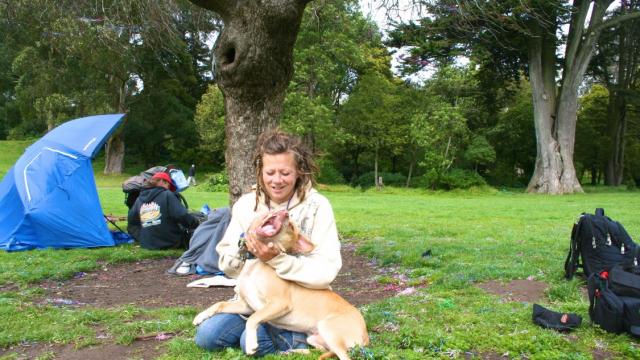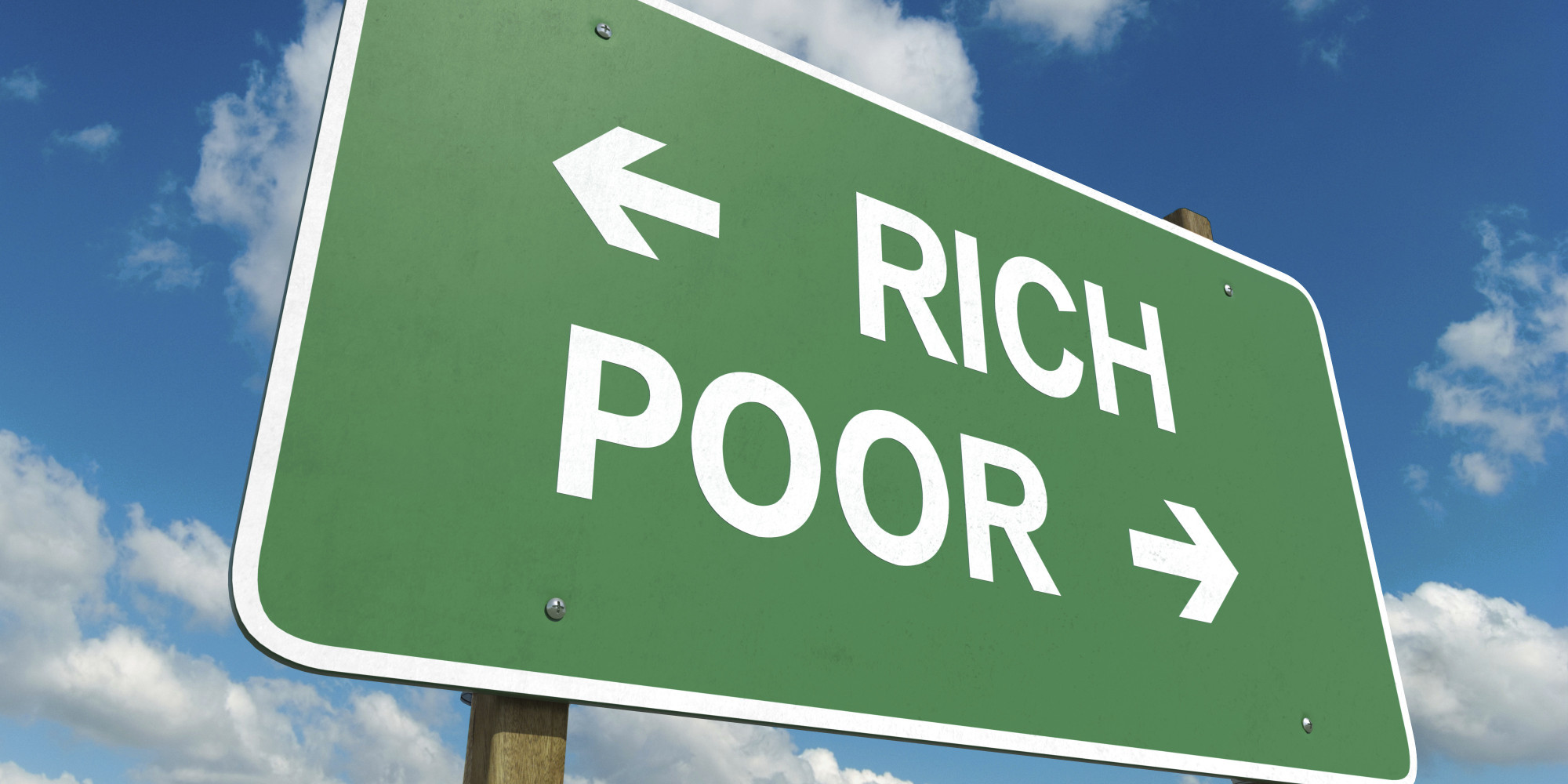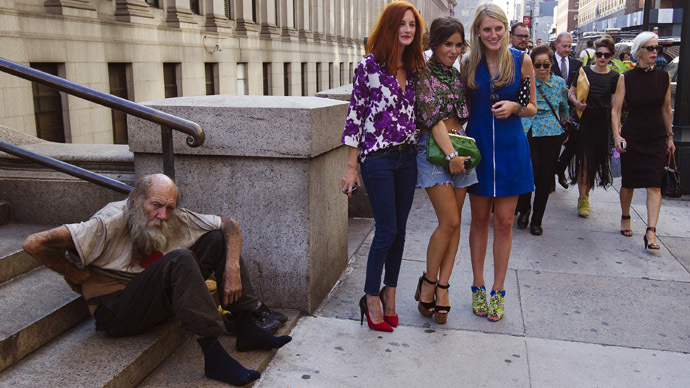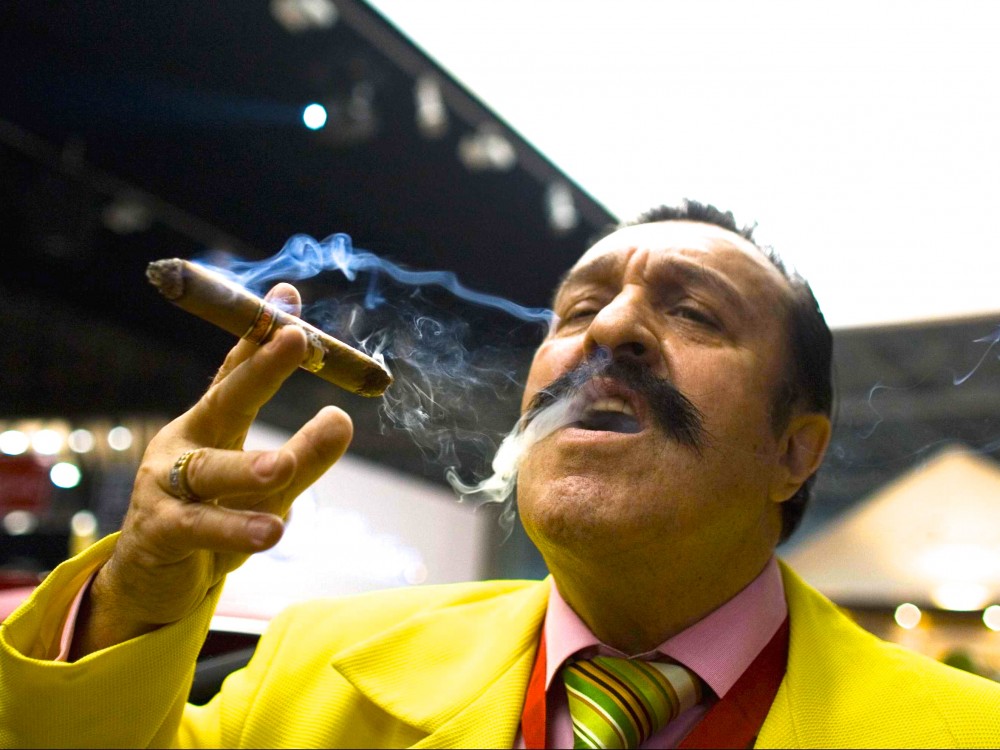
Early Saturday afternoon in San Francisco’s Golden Gate Park reveals inequality like perhaps no other place can. Here, a group of several dozen young professionals, all white, are playing a game of kickball with one additional rule: they must be holding a cup of beer in their hands at all times. Meanwhile, 100 yards away is a group roughly the same size, but they're not having so much fun; along with thousands in San Francisco’s homeless population, they're struggling daily for food and survival.
Across the city, this is becoming a familiar scene as an ever-growing influx of wealthy techies live side-by-side with the homeless, creating stark juxtapositions in a city many still view as the progressive epicenter of America. In recent years, despite the vocal conversation occurring over gentrification, inequality in San Francisco has reached historic levels.
To put it into perspective, San Francisco’s level of income inequality is now on par with Rwanda, according to a report published last year by the city's Human Services Agency. As poor, working and middle class segments of San Francisco continue to fall farther behind, more and more people are being forced to abandon their homes in search of places where they can simply survive.
The report cited the Gini Coefficient, a standard used by the World Bank, CIA and other organizations to measure economic standards worldwide. The closer a country or city is to a 0 score, the more economic equality it experiences, according to the standard. In Sweden and Denmark, for example, the score is 0.25 and 0.24, respectively. The U.S., by contrast, earned a 0.45 score, showing the increasing gaps between the haves and the have nots.
San Francisco ranks far lower than the national average, with a 0.523 score. That’s worse than Rwanda, at 0.508, but slightly better than Guatemala, at 0.559.
In figures most Americans can by now understand, the middle class in San Francisco has declined by over 10 percent since 1990 – meaning those earning between 50 and 150 percent of the city’s median household income of $72,500. On top of that, the number of households earning more than $200,000 has nearly tripled in the same period.
Nowadays, the trend of big businesses buying up land or housing complexes in order to “flip” them and turn a fast profit has spread to even the most affordable areas of the city. In Visitacion Valley, home to what are still considered San Francisco’s “cheap” rental prices, developer Patrick McNerney of Martin Building Co. earlier this year purchased a large expanse of land in the hopes of turning it into the city's latest development spot.
McNerney is seeking to build a new upscale apartment complex with over 1,500 units, develop the local business area, and redesign the neighborhood in a way similar to the makeover that was given to SOMA, or South of Market – a once middle-class stronghold where one-bedroom apartments now routinely run for $3,500 a month. The average rental price in “Visi Valley” for a one-bedroom currently goes for $2,000.
Pushing People Out
While some praise the move as an effort to rebuild a once forgotten gem on the city’s outskirts, others, especially middle-income residents, fear it will initiate a new process of the gentrification that has already turned San Francisco into a playground for the wealthy.
“I don’t think that once the new building gets off the ground, people like my family and me will be able to survive,” said Martin, a 46-year-old plumber and father of three in Visi Valley. He added, “It means we will be pushed out like so many others across the city as landlords charge more and more.”
Still, there is a perception across the city that all residents are able to earn a living wage. Howard Anderson, an analyst working in the financial district, said San Francisco is “giving more” to the underprivileged than any other city.
“Here in San Francisco we offer a great living minimum wage that is going to increase to $15 in the coming years, and we help our homeless more than any place I am aware of, so I don’t know why people are still questioning our values," Anderson told Occupy.com.
"This whole inequality issues seems strange to me," he added.
Mainstream media outlets like The New York Times have chimed in on the issue, while maintaining that poor neighborhoods like the Tenderloin – the long-time face of inequality in the city – remain affordable.
“The neighborhood’s inexpensive rents have drawn artists,” one article argues, despite evidence that San Francisco's middle class artist community long ago left the Tenderloin and other neighborhoods for cheaper rents in the East Bay.
“I don’t know where people are getting all this misinformation about San Francisco,” said Trevor Mason, a San Francisco resident who was evicted from his Mission district apartment in 2014 and couldn’t find similar rent anywhere in the city.
“I moved to Oakland because it was the only place where I could afford to pay my bills and survive,” he said.
The Tenderloin has seen average one-bedroom rent prices soar by 20 percent in the last year, to nearly $3,000. High-paid techies have taken up shop in what many have taken to calling the “Twitterloin,” in reference to the giant social media site’s headquarters located there.
Finding a Better Way
Aside from the undeniable wealth gap, the U.S. is the only industrialized country where workers aren't guaranteed vacation time and where maternity and paternity leave remain up to the employer – so it's no wonder that frustrations here are building. Economist Robert Reich, an ardent supporter of the $15 minimum wage movement, repeatedly points out that consumers with greater purchasing power will spur economic growth, boosting the quality of life for all.
“Widening inequality challenges the nation’s core ideal of equal opportunity, because it hampers upward mobility," Reich wrote in the Christian Science Monitor. "High inequality correlates with low upward mobility."
For Reich, the answer lies in increasing wages for the fastest growing sectors of the economy, namely retail and service jobs. To do this, he advocates rebuilding the union structure to assist workers as they demand better wages and working conditions. “We need to reinvigorate unions, beginning with low-wage service occupations that are sheltered from global competition and from labor-replacing technologies. Lower-wage Americans deserve more bargaining power,” Reich argued.
The question now is whether people begin to see inequality as a key barrier to economic development and community health – and, in a city with values as progressive as San Francisco's, if they ultimately decide to do something about it.
3 WAYS TO SHOW YOUR SUPPORT
- Log in to post comments














